Give Your Lawn or Garden a Centerpiece with One of These White Flowering Trees

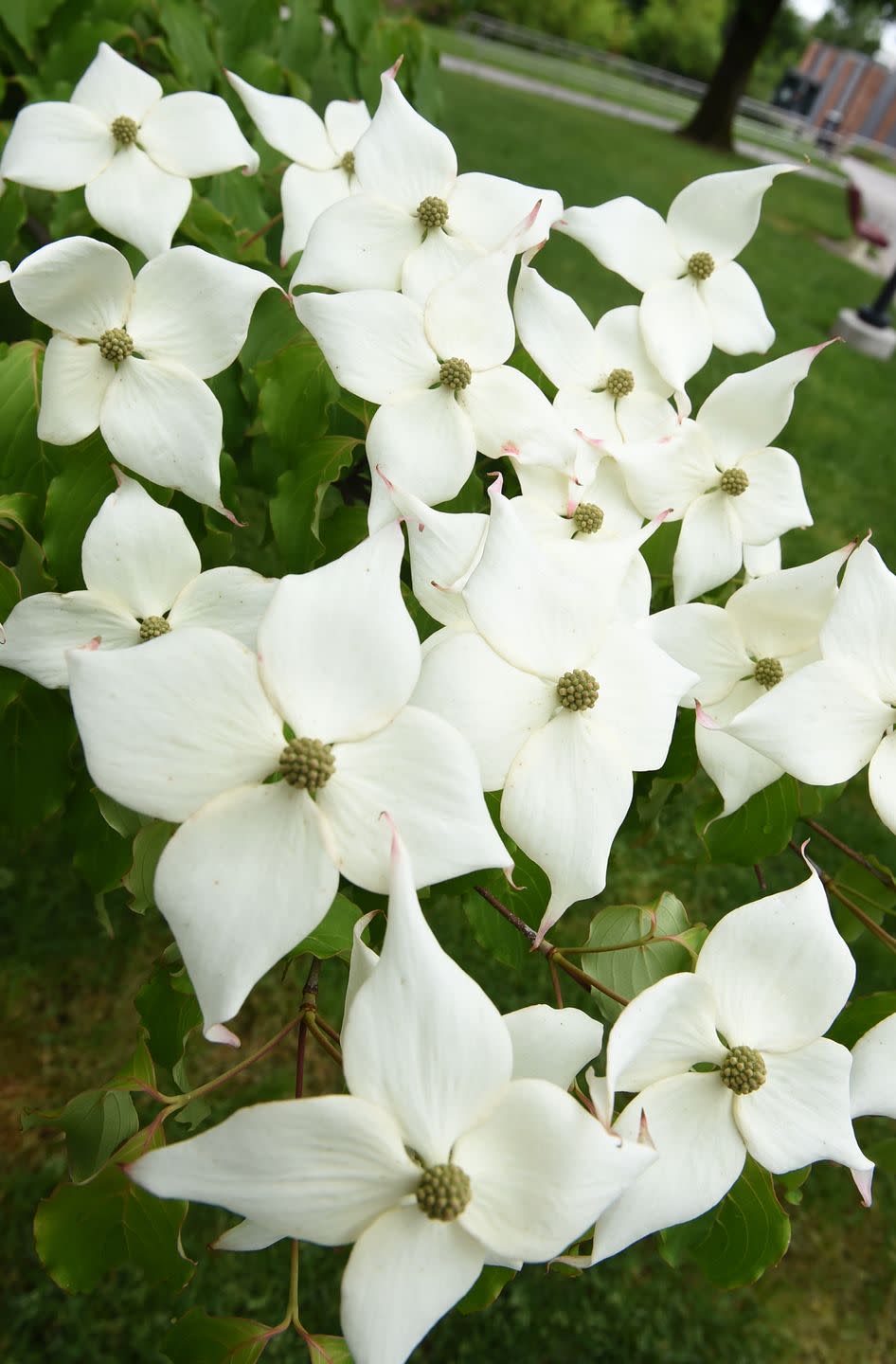

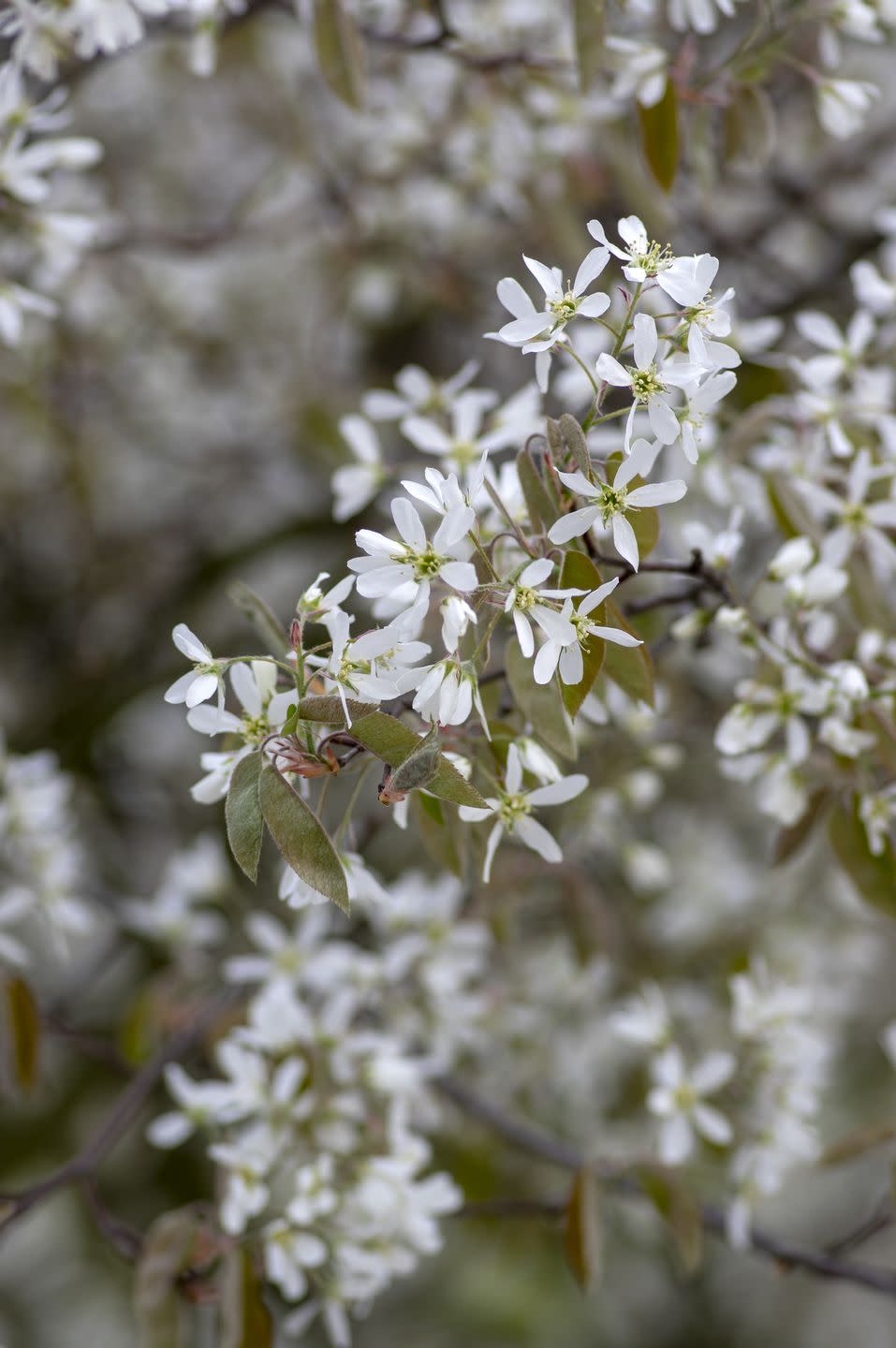
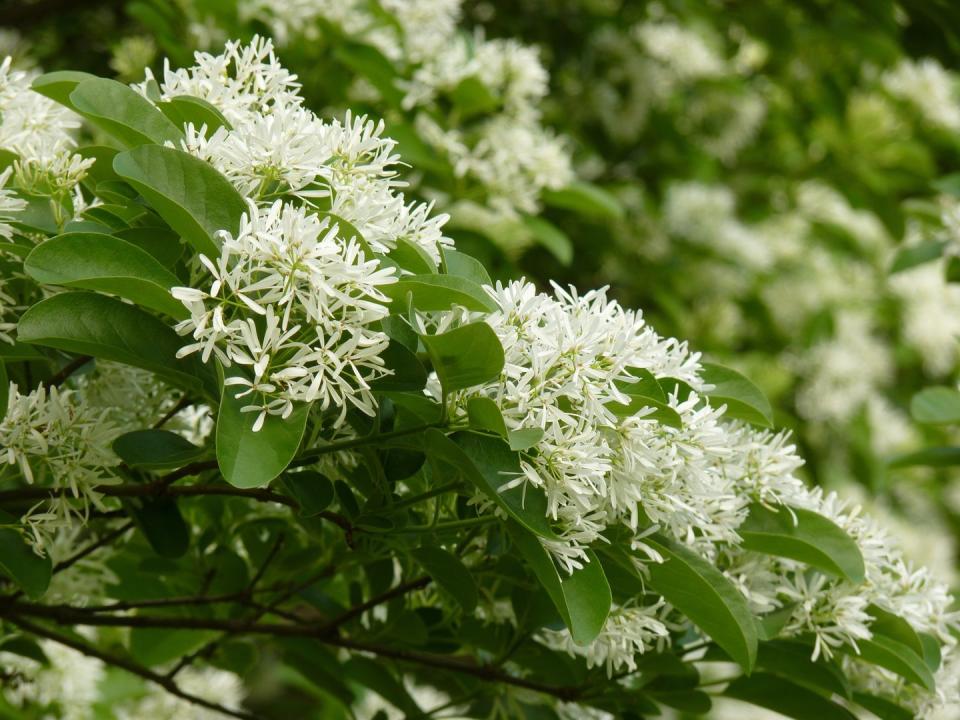


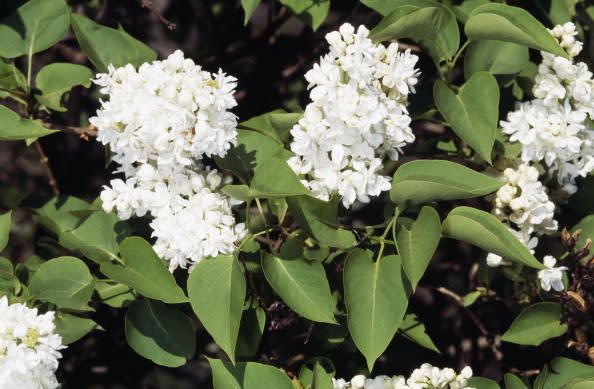
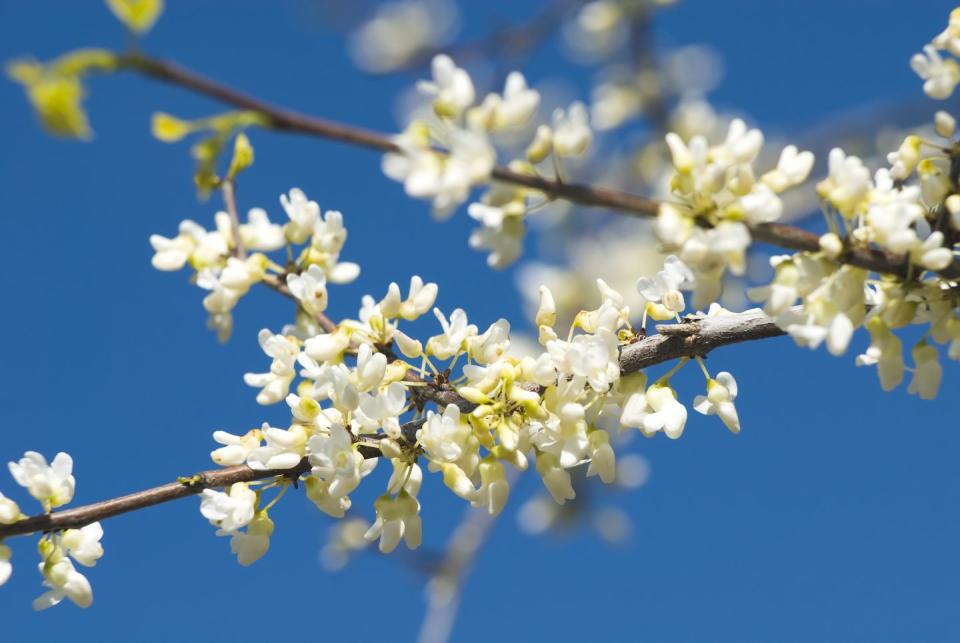
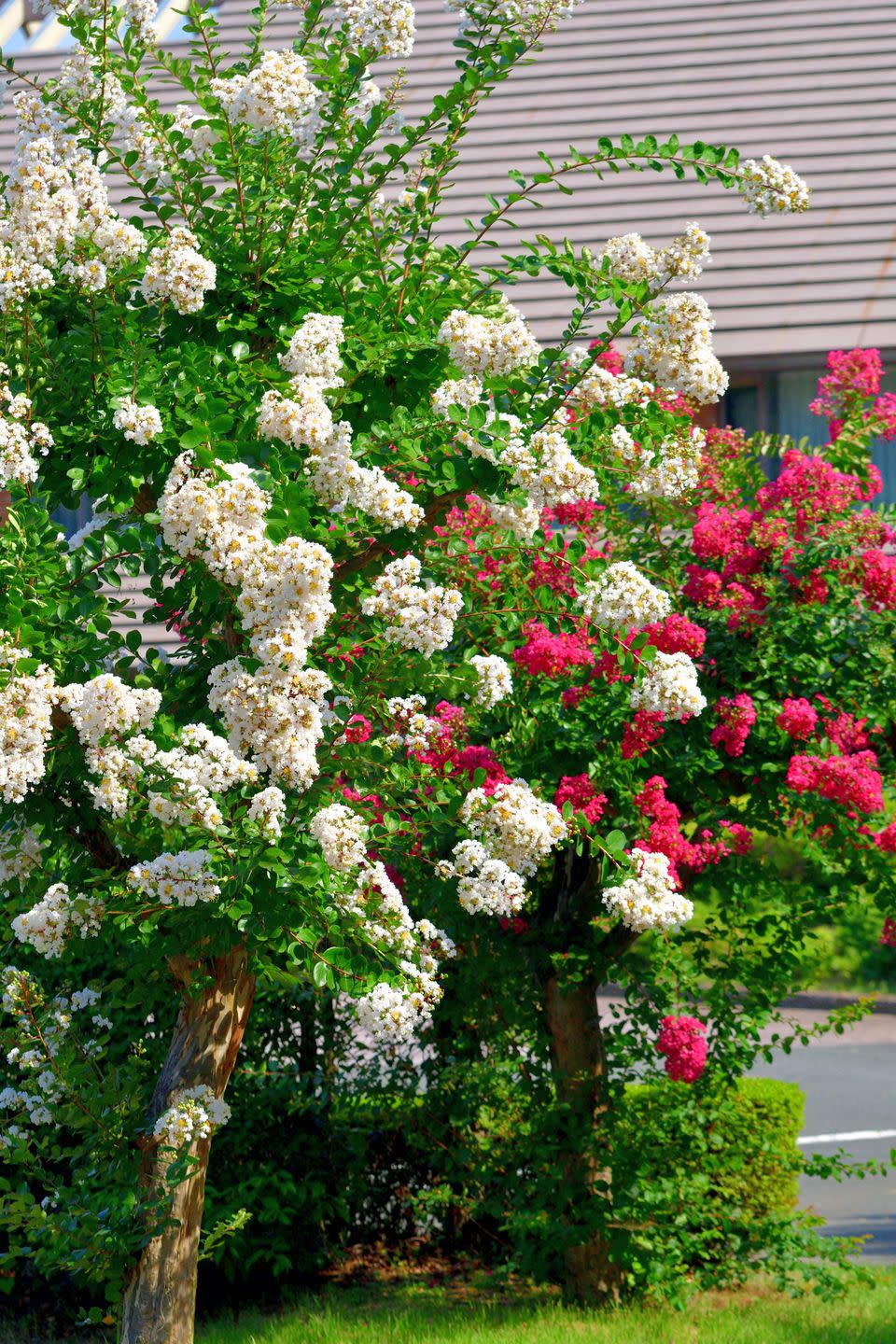
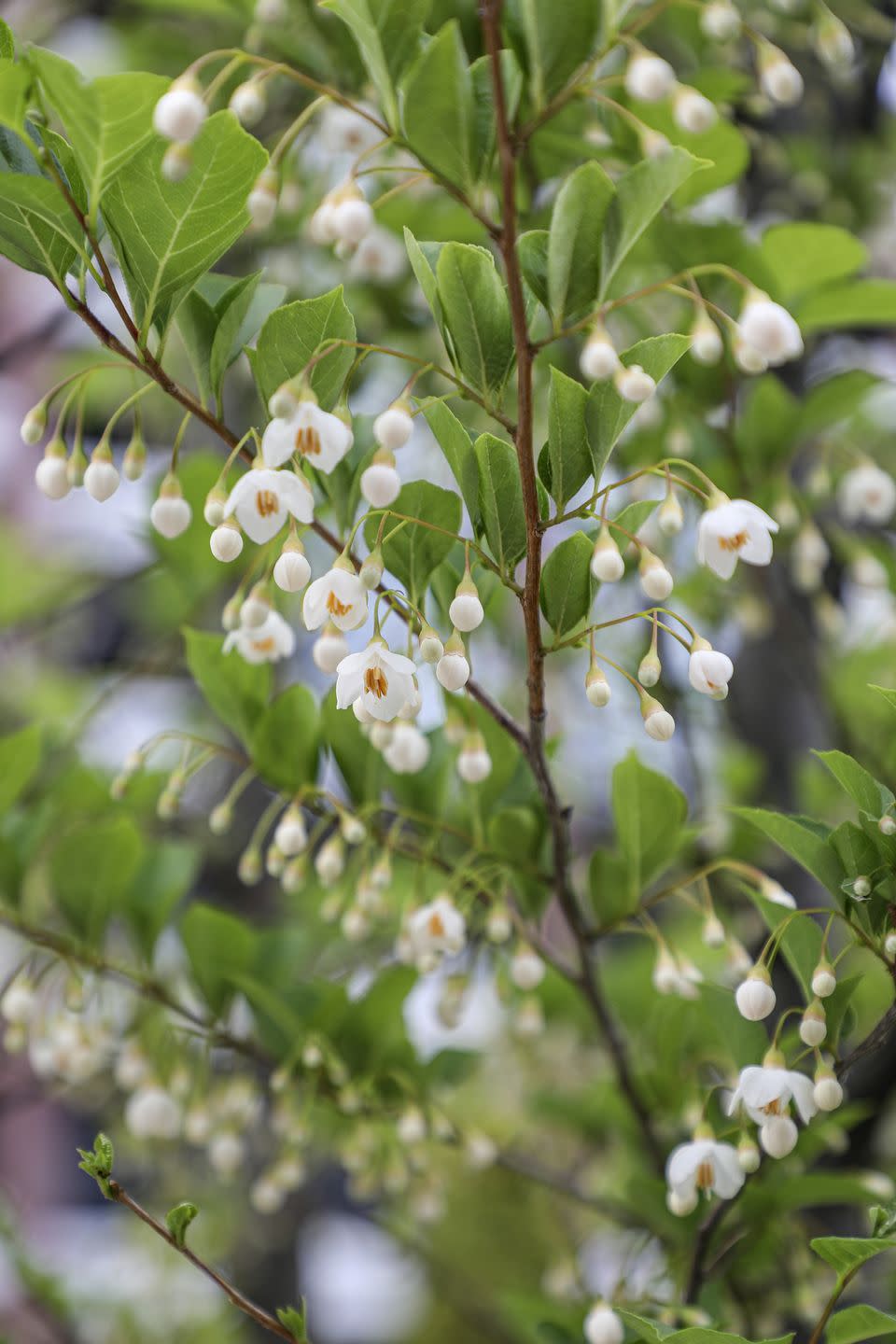
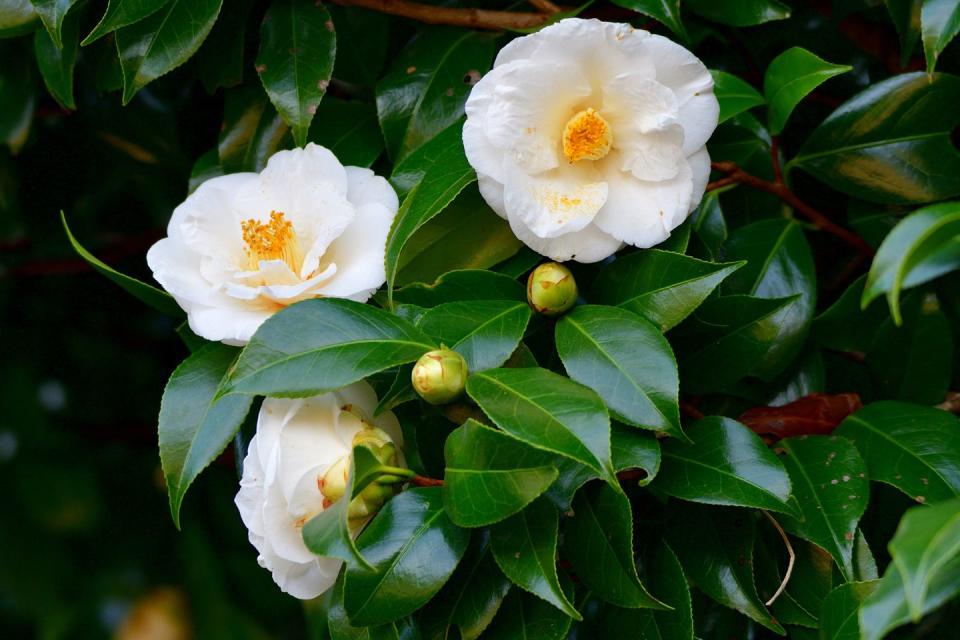
Give Your Lawn or Garden a Centerpiece with One of These White Flowering Trees
Flowering trees are a smart investment on many levels: They add beauty and shade, support pollinator and bird populations, and provide an eye-catching focal point.
Many also flower in the spring to welcome warmer days, and many are small trees, which fit well in even compact spaces.
When choosing a white flowering tree, make sure it can survive winters in your USDA Hardiness zone (find yours here). Most flowering trees require full sun, which is considered 6 or more hours of direct sunlight per day.
Also, consider a tree’s mature size; it may not look like much now in its gallon-sized container, but don’t plant it too near your house or under overhead wires. You don’t want to create a maintenance nightmare that will require intensive pruning or removal of the tree a few years down the road.
Water deeply when planting, then regularly for the first season to help establish a strong root system.
Finally, before you go shopping, be aware that there’s at least one white flowering tree you shouldn’t plant: Braford pear (Pyrus calleryana). Once a favorite of developers, this ornamental tree was planted everywhere until its weaknesses became apparent: The trees have stinky flowers (some say they smell like rotting fish or cat urine—which is not something you want in your front yard).
They also have weak wood, which tends to split down the middle—which can be dangerous as well as unsightly. To top it off, it's actually considered an invasive species in some parts of the country.
Ahead, our top picks for the best white flowering trees for your lawn or garden:
Give your lawn or garden a centerpiece that bursts with beauty every spring, with one of these white flowering trees.
